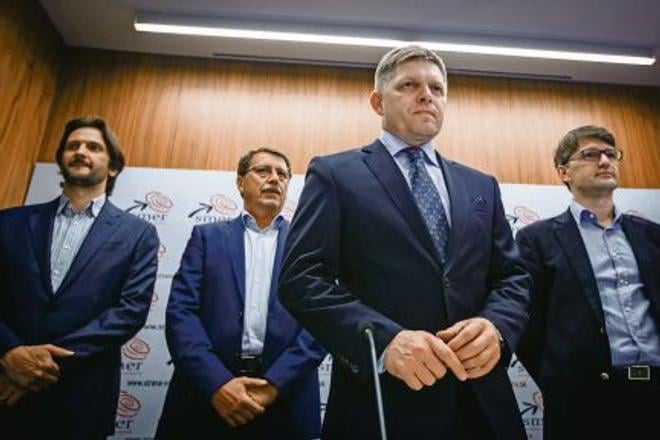IF ROBERT Fico’s homework before the run-off was to mobilise his voters who stayed at home in the first-round vote, as many observers had suggested, then he proved to be a good student. Fico increased his vote count to the levels of his Smer party’s support suggested by opinion polls, but that could not compete with the vote count of all the other relevant first-round candidates, who amassed their support for Andrej Kiska.
The voter turnout in the run-off was significantly higher than in the first round of the election. While two weeks ago, 43.4 percent of the voters attended the election, this time around the turnout exceeded 50 percent, as over 2.2 million voters turned up to vote.
Some analysts estimate that Fico, even though he did not win the election, was successful in mobilising voters and that the boosted turnout number was rather due to those who ignored the election in the first round and now came to support him in the presidential vote.
“I believe it was Fico’s voters who increased the turnout,” Martin Slosiarik of the Focus polling agency told The Slovak Spectator.
The election math shows that in the run-off, Fico received some 360,000 votes more than in the first round of the election. This increase in his electorate comes very close to the increase of the turnout: about 300,000 voters more attended the second round of the election compared to the first round.
“This in my view is a very clear answer that Fico made full use of the reservoir [of voters] that he had, but it was not sufficient for him to succeed,” Pavel Haulík of the MVK polling agency told The Slovak Spectator.
It is highly probable that the “new voters” who ignored the first round but turned up to vote in the run-off were Fico supporters, Slosiarik agreed, and explained that it is unlikely that Fico managed to “turn” some of those who voted for Radoslav Procházka or Milan Kňažko in the first round.
Kiska’s victory was thus not due to the fact that Fico’s voters let Fico down, but rather thanks to his success in mobilising the voters who supported the other five or six candidates in the first round of the election, opined Grigorij Mesežnikov, president of the non-governmental think thank Institute for Public Affairs, noting that Kiska increased his vote count three-fold compared to the first round (over 1.3 million votes compared to some 455,000).
“I believe that a large majority of people who voted for Kiska simply repeated their vote [from the first round],” Slosiarik said, adding that the potential was clearly outlined after the first round and the question was how the voters of Procházka, Kňažko, Pavol Hrušovský and Gyula Bárdos would react. And most of them simply came to support Kiska, even despite these unsuccessful candidates’ failure to send a clear message about whom they would recommend their voters to support in the run-off, according to Slosiarik.
“In this sense the voters seemed to have their preference clearly set,” Slosiarik said, noting that the result of the election has confirmed that Kiska stood a chance against Fico, as the pre-first-round polls suggested.
Roman Cuprik contributed to this story



 Fico garnered almost 900,000 votes, but still lost. (source: SME)
Fico garnered almost 900,000 votes, but still lost. (source: SME)